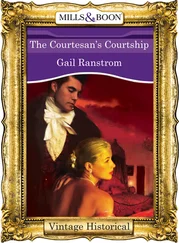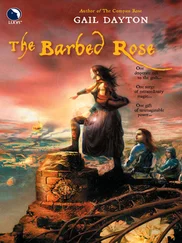Only one single time, one single night in that winter, when my stomach was not yet very big, he got into bed with me. He didn’t fuck me, he didn’t even take off his pants, he only undressed me naked and worked on me until I came in tears. And he held me a little longer against his chest, until perhaps he thought I had fallen asleep, and then he got up and went away.
I didn’t want to come like that. I did want to come, the fact is that I did come, it’s only in pornographic movies that a woman shudders and comes against her will, and he finished me off completely with that unselfish sex, I finished myself in that beggarly sex, under the generosity of his mouth and hands, trembling, rising and falling, not holding my head above water, swallowing black water, sinking in waves of humiliation. And in all that time I knew that he was really trying to do me and my body good. And in the days to come, too, like a dog I would fawn on the accidental touch of his hand, and arch at the memory of a caress.
You could say that in that winter I lost my self-respect, you could say so — but that wasn’t the way I felt, at least most of the time. And with the feeling of humiliation, with my wretchedness and pink, running nose, in my madness I invented a new kind of respect for myself. Like a private code of chivalry. Like setting myself a martyr’s test, at the conclusion of which I would present myself to receive a medal from the Order of Faithful Lovers. No nagging. No clinging. No whining. No expectations and no demands. This was the motto inscribed on my shield. And with all my strength I tried to comply with these commands. Because if I was sentenced to being a beggar, then at least I would be a beggar with an ethical code.
Vogel’s weren’t the only lines of poetry in my head, there were all kinds of others, too, and without any other books at hand — Alek’s were in Russian, French and German — I absorbed myself in the material from my high school literature courses to such an extent that I still know some of it by heart. For hours I held myself spellbound with the poems of Alterman’s The Joy of the Poor , with the eternal absentee coming to the woman “to join her behind the glass,” with the stranger coming to the city to “stand in the gate, and guard your sleep,” with his hidden voice demanding: “And you, now swear by God that you / will draw strength from your miseries.” With his voice promising “like fire and spear I shall give you / comfort, I shall fill you with inhuman / strength,” until “before all is lost I shall / brace you for the time / I the remem- / berer, I the witness.”
I knew that Alek didn’t love me, I’ve already said so, and with a surprising maturity I did not delude myself with thoughts of lightning suddenly striking him. Somehow it was clear to me that people don’t suddenly fall in love with someone who in any case is getting under their feet all day. And nevertheless I wanted something, I longed for something. To be significant in his eyes. To be important to him. To be woven into his heart in a way that could never be unraveled.
Of all the poems I read then the most perverse was an old English ballad we studied in the first year of high school, called “Childe Waters.” In this ballad, which I don’t remember by heart, even though I’ve read it many times, the pregnant heroine cuts off her hair, puts on a page’s costume and accompanies her lover when he sets out to find himself a bride. Childe Waters rides and rides on his horse, the lovelorn girl walks and walks barefoot at his side, and after many verses in which he rides and rides and the damsel walks and walks through thorn fields and rivers, they arrive at a golden palace in a great city. When they are already inside the palace the cruel Childe Waters sends the fair Ellen to bring him a whore from the street, and to add to her humiliation he also commands her to carry the whore in her arms so that she won’t dirty her feet. Ellen does as the knight commands, and while he rolls around in bed with the whore she has brought him, the chivalrous pregnant woman goes to sleep in the stable.
I admit that I was really turned on by this sad ballad then, even though I already had some idea that it was stupid and sick.
In my imagination, I think, I saw myself as the descendent of all these lovelorn literary women, their sister in an order of unrequited love. Armed with my limitless love, armed with my passivity, possessed of great strength in my way, and “Not all is vanity, my dear / not all is vain,” and “Strength has no end, my dear, / only the body that breaks like clay.”
Clearly I was trying to glorify my wretchedness, obviously I was trying to glorify my wretchedness, what else? But this glorification held me to a certain standard of dignified behavior, and it may have saved me from an even worse wretchedness, and from actually crawling like a worm. I mean that “If you tell me to go I shall go, / If you tell me to stay away I shall stay away,” is preferable, after all, to “please don’t go, no, don’t go, I can’t stand it, I can’t take it, no, Alek, please, please don’t.…”
So it’s true that I painted the banal bad as “gloriously bad” to myself, but it’s also true that the “gloriously bad” helped me to get through another miserable hour and another miserable morning. And therefore, however ridiculous I find this romantic pose today, and for all my crushing feminist critique of those poems, I remember how at a certain point in my life they simply helped me to cope. And how in the end, after I gave birth and Alek left, what saved me from total collapse was precisely the romantic pose.
IF YOU TELL ME TO GO
Among all the marvelous qualities I bestowed on my heroine Nira Woolf I also gave her a musical gift and an exquisite contralto. For the most part she only plays to herself at night, improvising jazz both in order to relax and in order to think about her current case, but once I let her sing a completely different song. This happens in the last scene of Dead Woman’s Voice , the sixth book in the series, whose grim plot centers on the attempt to cover up a case of incest. The raped daughter of the senior officer in the security services kills herself before the book begins. The senior prosecuting attorney, the rapist father’s mistress, who is completely subjugated to his will, kills herself in chapter sixteen, after he thrusts a revolver into her hand. And in the last scene, the intern who was trying to blackmail the father lies bleeding on the steps to Nira’s house, while the chief villain himself lies bound at her feet.
Throughout the book my Nira is mainly interested in the servile behavior of the mistress-lawyer, and at the end, after the mystery is solved and the police are already on their way, she sits down at the piano and sings to the villain lying on the floor with his hands and feet tied painfully together behind his back, in the so-called “banana knot,” Alterman’s “Song of Three Answers”: “Everything you ask and wish / I shall be happy to do / I shall never lack the strength / To do as you wish me to.” Nira Woolf’s back is turned to the cruel villain who tried to trap her, too — first to seduce her with his charms and then to murder her — her warm contralto grows louder from line to line against a background of sirens, and only when the police are already in the room does she turn around, without even looking at him. A private joke of my own, I would say, but what kind of a joke is it in fact?
My darling Hagar, who is not a great admirer of my books — she considers them “shallow”—actually praised this scene, although she remarked that “for her taste” it was “too far-fetched.” My daughter, who from time to time sends me articles about “The image of the woman in …”—all her articles seem to me the regurgitation of the same slogans — my daughter appears to have been born with an innate immunity to the germ of romanticism and to have subsequently enlisted in the medical corps dedicated in deadly earnest to its extermination. Not for her own personal benefit, since she does not seem to be in need of it, but for the good of the population at large.
Читать дальше












